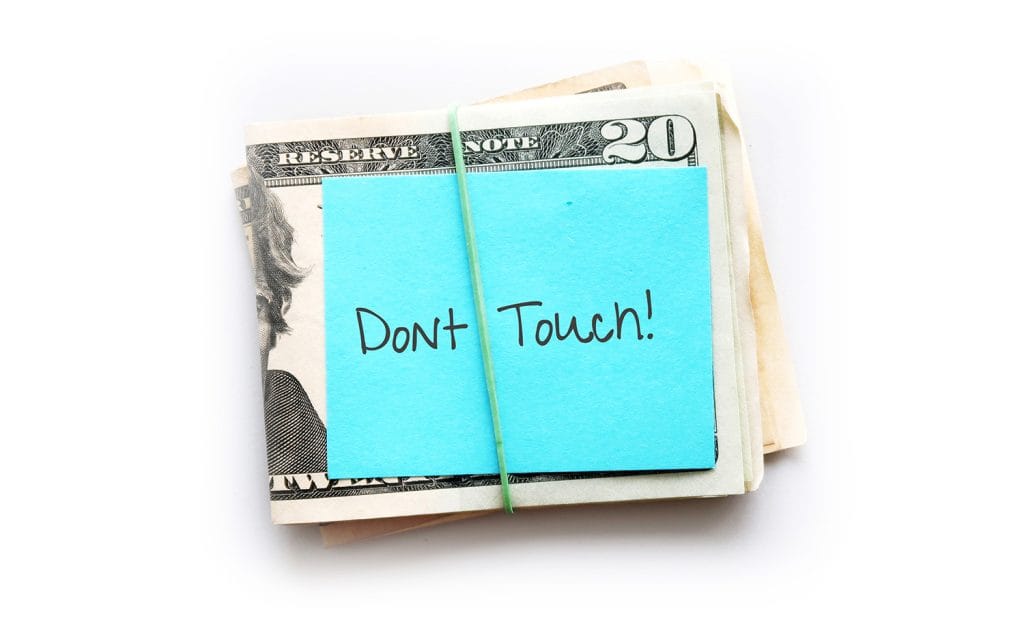
Expect the Unexpected: Why You Need an Emergency Fund
Having money on hand to cover unexpected bills is good for your financial health. Learn about starting an emergency fund.
The holiday season is upon us, and while you may be prepared to spend a little extra on gifts, food, decorations, and charitable donations during this time of year, you likely don’t have room in your budget for lost or stolen funds. Unfortunately, thousands of people each year fall prey to holiday scams – especially nondelivery and nonpayment crimes – which could leave you in a financial bind that stretches far beyond the festive season. In 2021, the Internet Crime Complaint Center reported that nonpayment or nondelivery scams cost sellers and shoppers more than $337 million and that credit card fraud accounted for another $173 million in losses.
Victims of nondelivery scams are those who pay for goods and services but then never receive them – or their payment never reaches the intended recipient. Nonpayment scams involve those who ship goods or provide services but are never paid for them.
In this article, we’ll explore five common types of scams you could encounter around the holidays so you’ll know what to look out for and how to avoid them.
1. Secure Your Special Deliveries
Billions of packages are shipped each holiday season, and online scammers have come up with several ways to steal joy – and money – from both shippers and recipients. Here are some common package-related scams to look out for:
Clicking a link could install malware on your device that allows a scammer to capture personal information, and friendly-sounding “customer service representatives” on the phone could be fraudsters trying to capture your cash.
Instead, call the shipping agency or retailer directly (not at the number provided in the communication), or go to your merchant’s website or app or a verified shipping website – like UPS.com, USPS.com, or FedEx.com – to check on your delivery.
2. Be On Guard for Unusual Gift Card Requests and Offers
According to the Federal Trade Commission (FTC), gift cards are the most reported payment method for scams. Fraud may come in the following forms:
Tip: No legitimate government agency, utility company, charitable organization, or merchant will require payment in gift cards – so receiving a message that you must is a huge red flag. If you receive requests for gift cards from a friend or family member, contact them directly to verify. And call charities or companies directly to see if gift card offers or fundraising requests are legitimate.
If a message seems unusual or too good to be true, it probably is.
3. Sidestep Social Media Gift Exchange Schemes
While that annual Secret Santa with your friends or coworkers can be a lot of fun, “gift exchanges” popping up on social media feeds are often illegal pyramid schemes instead. They frequently solicit personal information about you and your friends and prompt you to buy and ship gifts to others with the promise that you’ll receive great gifts in return. Beyond the initial disappointment of not ever receiving those gifts, you could also be setting yourself (and your friends) up for future scam targeting or even identity theft.
Tip: Avoid these large and “secret” gift exchanges on social media. And report these types of social media posts to both the social media provider and the Better Business Bureau.®
4. Take a Second Look at Temporary Job Offers
Lots of legitimate companies need extra help around the holidays to keep up with increased demand. But scammers are out there taking advantage of opportunities to prey on seasonal job seekers.
Be suspicious if you see any of these elements in a job listing:
Tip: As much as possible, stick to local businesses you know when applying for seasonal jobs. Avoid following up on listings that offer high pay for minimal work, request payments for your own supplies or training, or insist you work for free for a while to prove your value.
5. Do Your Research Before You Donate
It’s the season of giving, and many people are being extra generous to the causes and charities they support. Criminals can take advantage of these good intentions by making urgent requests via email, text, voicemail, or social media, sometimes requesting contributions in unusual formats – like gift cards, wire transfers, or cryptocurrency.
Tip: To avoid falling into a fake charity trap, always investigate the organization before you donate. Sites like Charity Navigator are a good place to start. Contact nonprofits and other groups directly if you’ve received an unsolicited fundraising request. And avoid contributing with nontraditional forms of payment. A credit card is usually a wise choice since most cards come with fraud protection.
Verify Businesses and Charities and Check for Similar Scams
Protect yourself by checking in with these agencies to quickly identify legitimate organizations and possible scams.
What to Do You If You Think You’ve Been Scammed
By keeping a watchful eye out for potential scams, we hope you’ll be safe this holiday season. But if you ever do fall into a scammer’s trap – or think you might have – there are things you can do to reduce the impact.

Having money on hand to cover unexpected bills is good for your financial health. Learn about starting an emergency fund.

Learn seven ways you can raise your credit score and improve creditworthiness.

Learn the essential basics of budgeting, plus practical tips designed to foster better money habits.
Copied to clipboard!